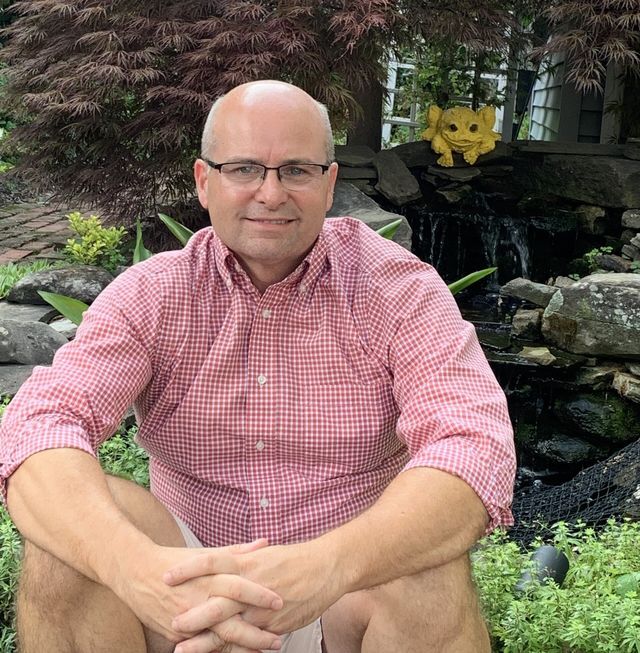Learn more about my book "The Courageous Ask"
Accountability Structures Have a Role in Preventing a Leadership Fall
Everyone around a nonprofit leader, including their accountability structure, has a role in helping to prevent the fall of that leader. While the leader must take full responsibility for a fall, too many times those around a leader don't know what to do, or don't have the courage to react, as they watch their leader fall.
It’s time to be proactive in preventing the fall of a solid leader, and it's time to ask some Courageous Questions.
The four articles prior to this discussed the proactive approach a leader must take in their own life to be safe from a leadership fall. This article shifts to the role of their accountability structure -mainly a board of directors- in helping the leader prevent a possible fall. After the next few articles we will move on to the role of the community in being proactive to help a leader stay upright.
(This article is the fourteenth in a series that focuses on starting a conversation centered on preventing the fall of nonprofit leaders. I write it from a Christian perspective, but all leaders will benefit. Be sure to sign up to receive these articles via email every Tuesday at
briankreeger.com.
In addition to receiving these articles two days before they hit social media, you will receive the Introduction and the Appendix (My story) to my upcoming book,
The Courageous Ask: A Proactive Approach to Prevent the Fall of Christian Nonprofit Leaders.)
A solid relationship
between executive and board that encompasses all of who the leader is, and the various roles they play inside and outside an organization is possible, but is unfortunately rare.
The ability of a board to communicate their care for their executive through the appropriate involvement in their personal life, as well as their job description, can be the difference between success and a leadership fall that many times culminates in organizational struggle. A board of directors must articulate to a leader in multiple ways that they are
for the leader, even beyond their organizational responsibilities.
My interviews and personal experience on boards of directors tell me that the role of the board in the personal life of an executive will be questioned. But let’s face it, most leadership falls have at their core a personal issue. So why don’t we talk more about it in a proactive fashion so we can attempt to skip all of the collateral damage a fall creates?
You may be part of the rare relationship that finds a board of directors involved in the life of their leader at an appropriate level. Frankly, I have witnessed this rare relationship with my own eyes, both as an outsider and as a board member.
Many board members will say that the relationship they have with their executive is what it should be and is solid. If that is your answer, I would ask you a couple questions:
- Has the relationship been tested through adversity? So many times after adversity strikes, an organization recognizes that the relationship was not as strong as they had hoped. Many times, when the facts come out, a board recognizes things they should have known, and would have known, had the relationship been stronger, had they been paying attention. But many times it’s too late.
- What would the opinion of your executive be? Just asking them the question is not good enough. Probe. Ask follow-up questions. Press the issue. Every executive wants to get along with their board, but they are not so quick to answer a question or assertion like this with complete honesty because of fear. There are executives reading this right now who would love for their board to ask them how they view the board-executive relationship and be able to answer with complete honesty.
But here is the real question you should be asking: Even if Brian is wrong, is an exploration concerning the benefits of a closer, more personal relationship worth your effort?
If you regularly read
my blog articles you recognize that a fall could happen in your organization. You recognize what harm could be done to your organization if you are caught not paying attention to more than a job description. You realize that even if an executive falls due to a core personal issue, the organizational problem, and the recovery from it, falls in your lap. If this sounds foreign to you, you may want to read my
blog article from several weeks ago.
Long ago, before I fell and when I was leading our free health clinic, I recognized the need for a board to look beyond a job description in evaluating the effectiveness of their executive. I was seeing issues all around me in my peer group, and in my own experience when it came to the board-executive relationship. But even as I wrote my soon-to-be–released book I thought I might be taking too hard of a stance concerning the volunteer board of directors. So, I started asking around.
I asked a strong natural leader
and organization founder of a midsize ($3.3 million) organization if she thought I might be a little too hard on the board side of things. I have witnessed that her organization has done it right. The response I received was this: “There are many resources out there developed for teaching a leader how to create a culture in an organization that breeds transparency, openness, and empowerment; a culture that values the individual as a human being and not just as a worker with a job description.” This leader continued by saying, “This hasn’t hit the boardroom yet, and is a challenge of our time.”
Wow, I was taken aback. I couldn’t have said it better myself.
So, let’s move that needle.
Over the next couple weeks I will be examining the sticky responsibility that a board has in making sure a leader knows they care beyond their executive leader's job description. I will write about the board’s need to sometimes save the leader from themselves. I will also write about where the compassionate, caring relationship begins, about expectations, and board engagement-engagement that appropriately strays into the personal life of the executive.
All of this is part of a plan for you to create a proactive approach to prevent the fall of nonprofit leaders.
Be sure to sign up to receive these articles via email every Tuesday at
briankreeger.com. In addition to receiving these articles two days before they hit social media, you will receive the Introduction and the Appendix (My Story) to my upcoming book, The Courageous Ask: A Proactive Approach to Prevent the Fall of Christian Nonprofit Leaders.
Brian@briankreeger.com
#Leadership Fall #Leadership Survival #Nonprofit Relationships #Proactive Approach #Leadership Struggles #Leadership Battles #Christian Executive Leader #Christian Leader #Board of Directors #Courageous Ask






